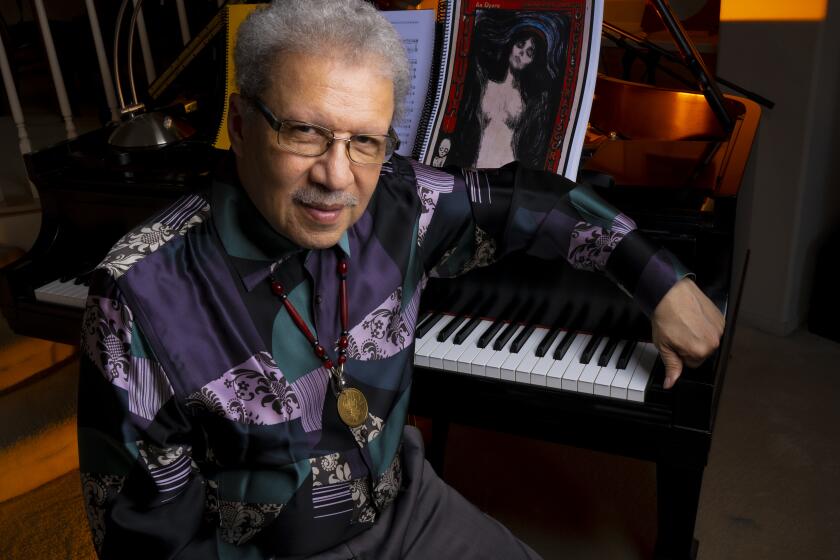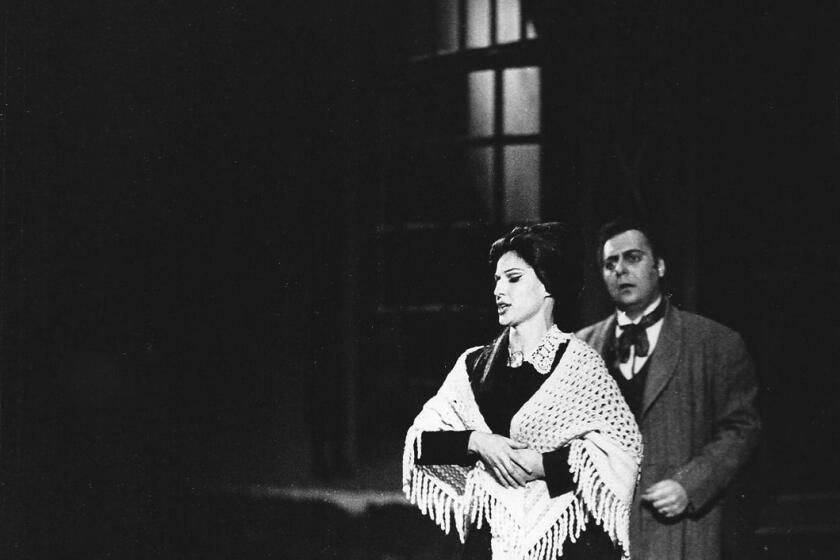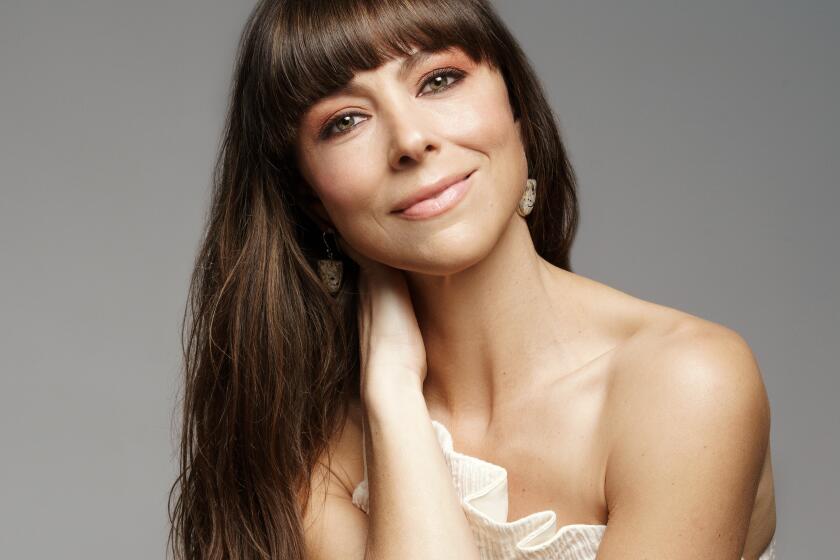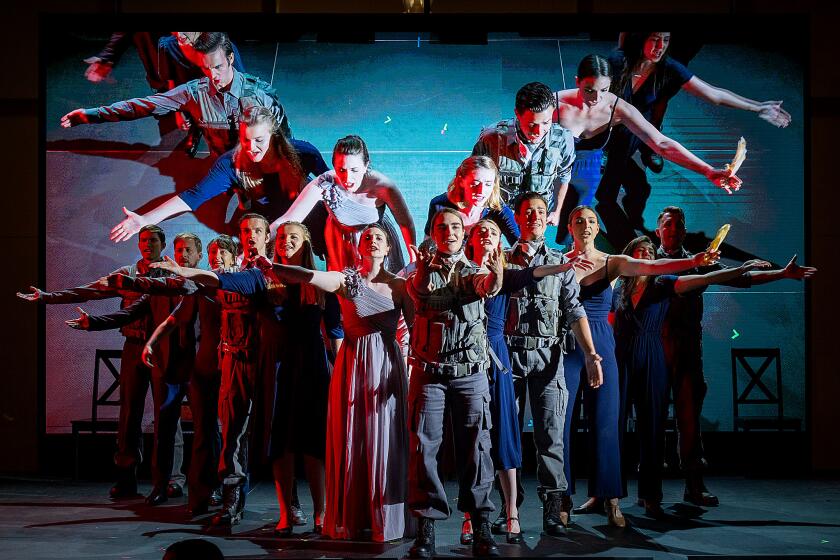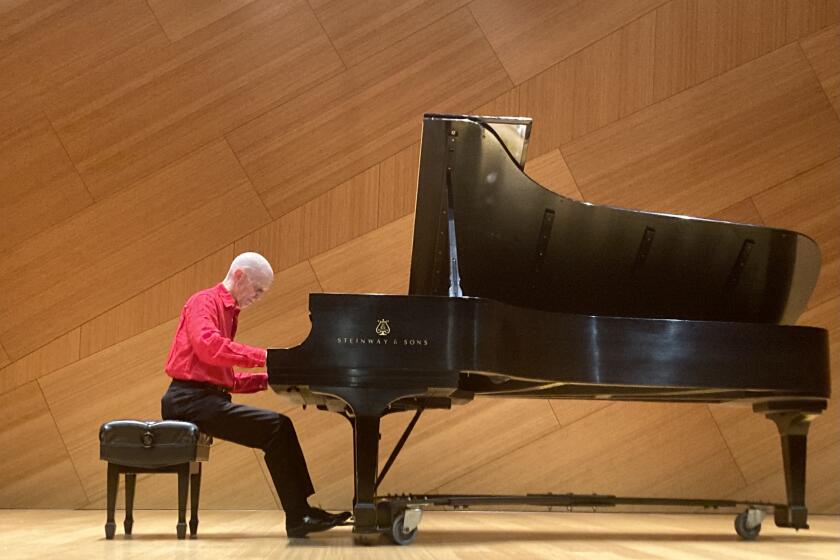Review: In Detroit Opera’s ‘X,’ a long-dormant Anthony Davis opera comes to life with marvelous singing and playing
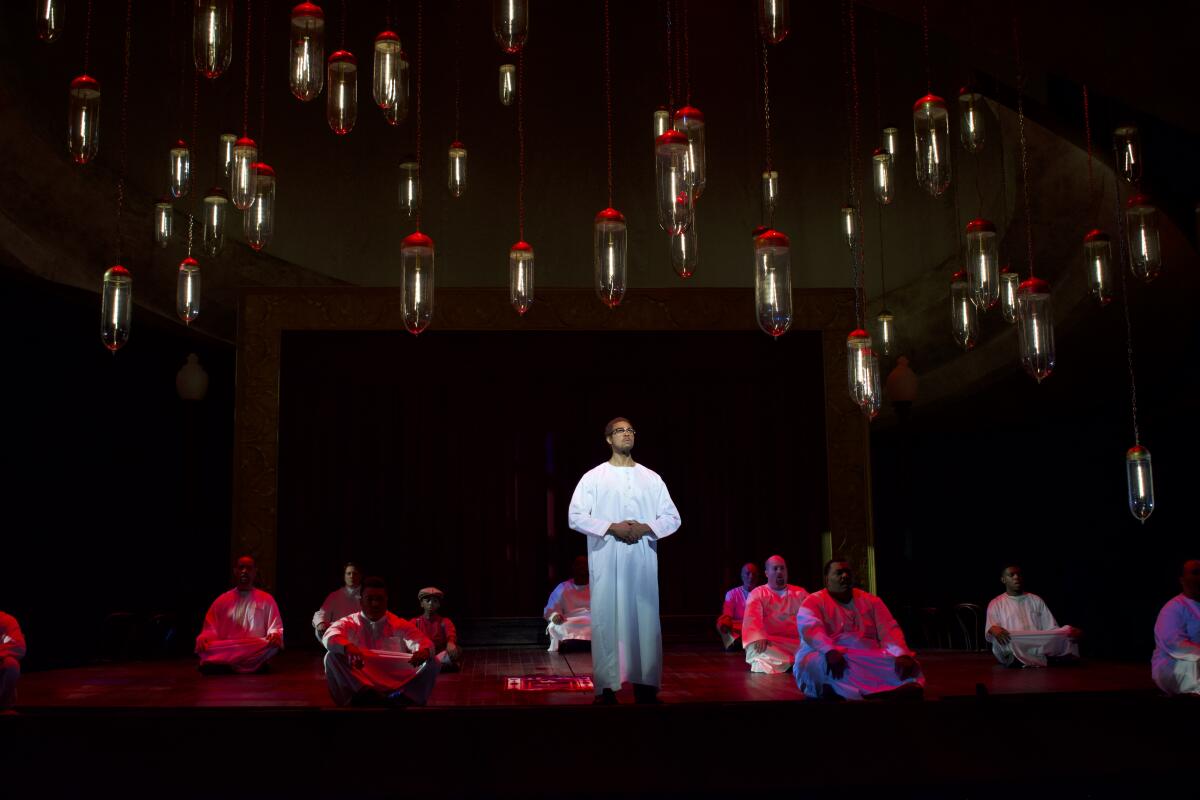
Stellar cast and instrumentalists were champions for Davis’ music, but the Detroit Opera premiere of this revision was somewhat muddied by confusing production decisions
When “X: The Life and Times of Malcolm X” premiered in 1986, there had never been another opera like it.
The Pulitzer Prize-winning Anthony Davis’ driving, eclectic score merged improvisation with notated music to support a predominantly African American cast. Thulani Davis’ libretto focused on a well-known American whom most of the New York City Opera audience could recall seeing on TV, if not in person. Together they created a genre that critics called “CNN opera.”
Other composer-librettist teams followed, and their operas received more critical acclaim and productions than “X,” despite the rare feat of “X” selling out its initial run.
On Saturday, an excited crowd packed into the Detroit Opera House for what is “X’s” third full production. Five hours before in Buffalo, a White supremacist gunned down 13 people in a supermarket — 11 of them Black.
The same problems of American racism articulated by Malcolm X remain with us six decades later.
The discomfort of “X’s” subject matter is the prevailing reason it has taken 36 years for this neglected masterpiece to receive its second production by a major opera company.
The daring, genre-leaping work, released as a 1992 double-album, will be recorded anew in June. The Metropolitan Opera’s 2023 performance of ‘X’ is set to be filmed for an HD theatrical release
The cast and instrumentalists were champions for Davis’ music, none more so than Davóne Tines as Malcolm X. The gravity of Tines’ stage presence — boosted by Dede Ayite’s period costumes — is exceeded only by his powerful bass-baritone voice, an unwavering vocal prowess displayed in singing from the top of Act 2 until the penultimate scene of Act 3. He projected the serenity and wonder of Malcolm’s religious conversions as well as Malcolm’s rage at the plight of African Americans.
Victor Ryan Robertson successfully portrayed two contrasting roles. For the character of Malcolm’s criminal mentor, Street, Robertson deployed a musical theater tone to complement Davis’ big-band influenced accompaniment, even scat singing for a few bars. When he later depicted Nation of Islam leader Elijah, Robertson’s tenor was more traditional, most climactically in a laser-beam-bright high note held at the end of Elijah’s first aria.
Soprano Whitney Morrison doubled as Malcolm’s mother Louise and his wife Betty. She was poignant as Louise, relating the story of how their house was burned down by the Klan and later going catatonic after her husband’s death. As Betty, expressing doubt for her family’s future and in Malcolm’s conflict with the Nation of Islam, Morrison’s lush vocals were radiantly lovely.
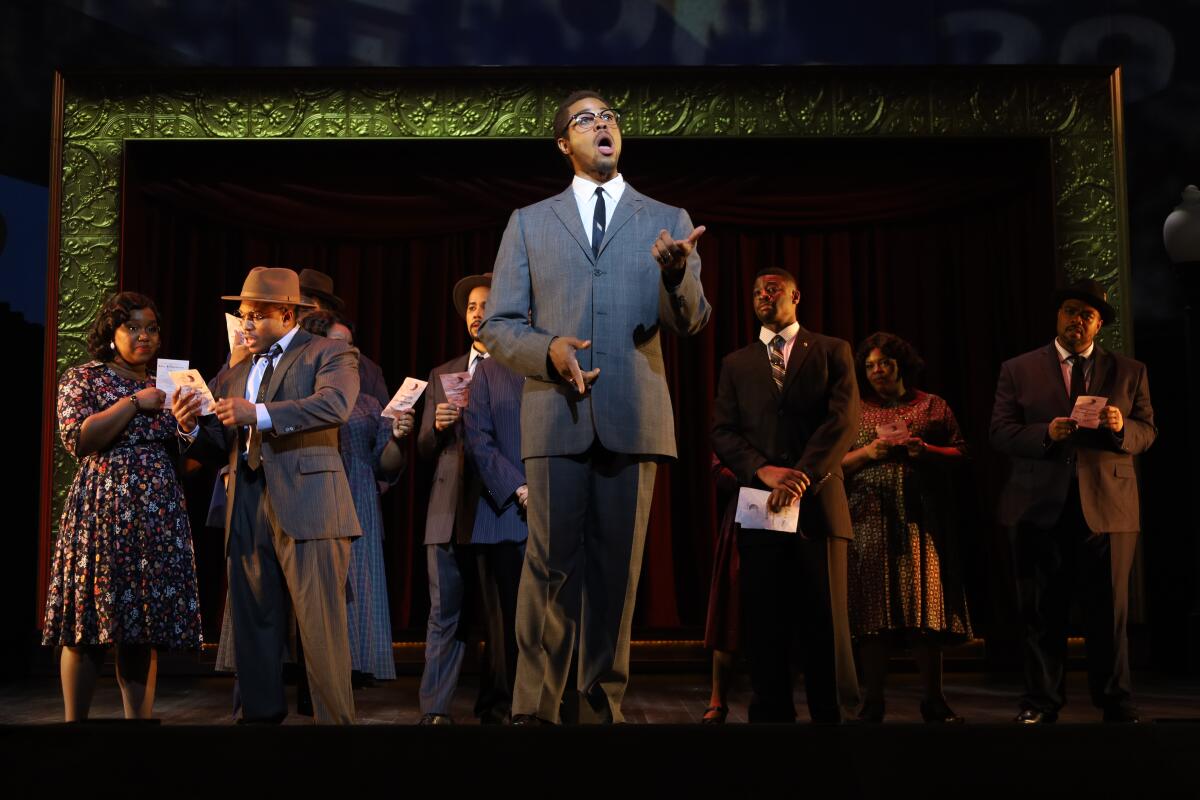
Conductor Kazem Abdullah led the pit orchestra through Davis’ tricky changing meters and difficult polyrhythms. A number of the musicians idiomatically improvised, with important contributions made by trumpeter Walter White, trombonist Vincent Chandler, and saxophonists Andrew Bishop and James Hughes.
The unsung musical hero of the evening, though, was bassoonist Daniel Fendrick. Replacing a quarantined musician, Fendrick learned his part with one day’s notice, practically sight-reading the difficult rhythms that evening.
The composer and librettist revised “X” for this production, cutting a few arias from the 1992 recorded version and adding more singing where previously there were spoken passages or instrumentals.
Robert O’Hara’s direction, Rickey Tripp’s choreography, and Clint Ramos’ set design confused more than elucidated. A small proscenium arch with a painted hilly landscape on the backdrop appeared upstage throughout the production. If you didn’t recognize it as representing the Audubon Ballroom where Malcolm X was assassinated, its appearance through the show was confusing. (“That doesn’t look like Lansing,” my companion commented.)
A photo of the ballroom crime scene was inserted in some, but not all, of the programs. One overturned chair in the photo’s foreground steals the viewer’s focus from the circled bullet holes in the backdrop. On the left and right peripheries of the set were upended chairs scattered just below crumbling brick walls.
Above all hung a huge structure resembling a fat donut with a small piece cut out. The director’s statement told us that this was Marcus Garvey’s Black Star Line steamship, now transformed into a spaceship that could take us anywhere or place. Without reading the statement, it was just an artsy screen onto which Yee Eun Nam’s videos were projected.
Elsewhere, stage directions for singers and on-stage extras in the libretto were replaced by four modern dancers. A riot where a policeman accused a boy of theft and shot him? We got the dancers loping across the stage, walked back by two policeman.
The final scene had no crowd assembling, no assassins firing weapons. Instead we got Malcolm at the podium in front of an empty ballroom, sound effect gunshots, and a blackout.
One could attend “X” with no knowledge of these details, and still get a general sense of the opera’s arc over Malcolm’s brief life. Wouldn’t it be more dramatic to see specific actions happen onstage?
When Anthony Davis arrived in San Diego three decades ago, he had a meeting with the then-director of San Diego Opera, Ian Campbell. The first words out of Campbell’s mouth were, “We’re never going to play your music here.”
The management has since changed. Will we ever get the chance to see San Diego Opera produce “X”?
Hertzog is a freelance writer.
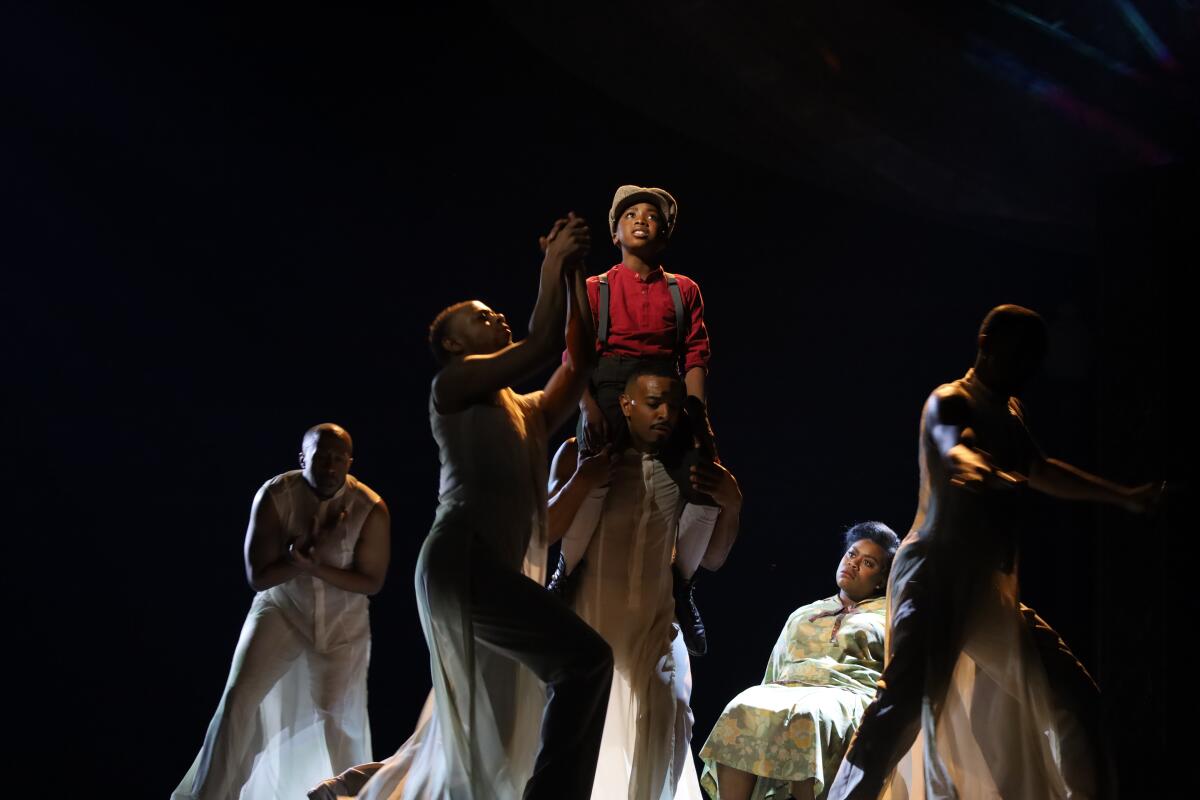
Get U-T Arts & Culture on Thursdays
A San Diego insider’s look at what talented artists are bringing to the stage, screen, galleries and more.
You may occasionally receive promotional content from the San Diego Union-Tribune.
